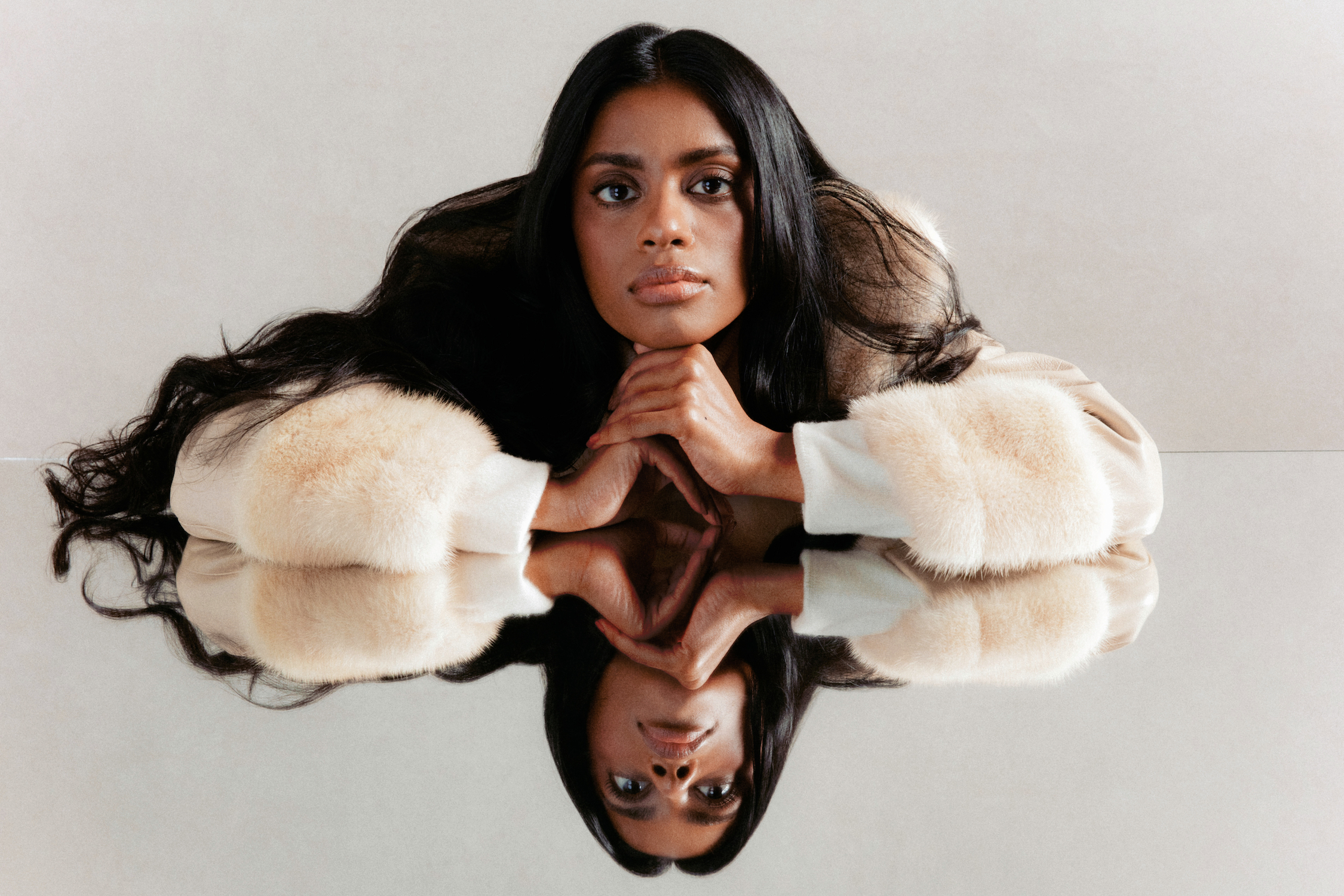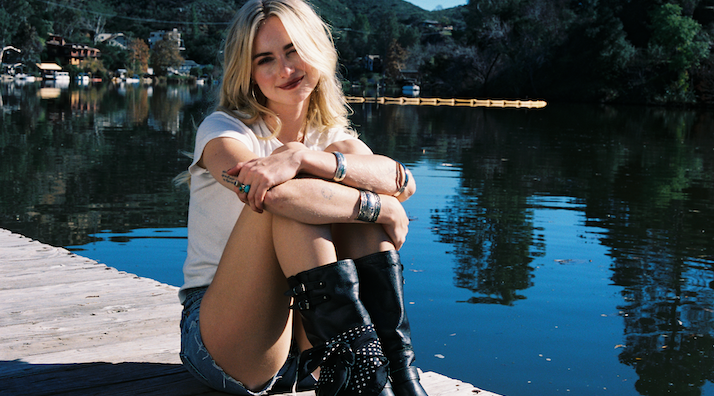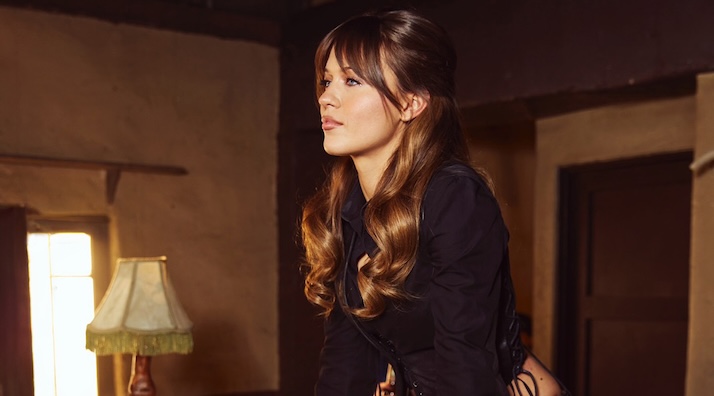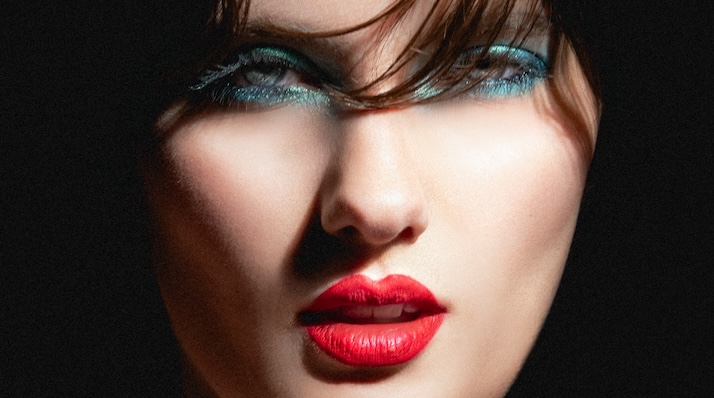Debbii Dawson and The Magical Duality of 'How To Be Human' [Q&A]

Photo: isstudio
Gifted songstress Debbii Dawson is paving her own way in pop, enchanting listeners with vulnerable dance-inducing confessionals that showcase her captivating vocals. In her new EP, How To Be Human, Dawson lives in the contradictions of life and turns confusion into a beautiful five-track project. Previously released singles “Turn The TV On” and “Happy World” were only a small part of the story and fans will be thrilled to hear the remaining three tracks that dive even deeper into the rising star's introspective artistry.
How To Be Human’s gripping introduction, “Solitude,” focuses on Dawson’s striking vocal performance before turning into a groovy self-worth anthem. For a project that goes on to explore some dark themes, beginning with this declaration of self sets a standard. Later, in the EP’s title track, Dawson shares her fear of losing this sense of self. “How To Be Human” is a raw piano ballad that everyone can relate to, highlighting the all-too-familiar feeling of group suffering through a reassuring melody. “Try” is the EP’s grand finale, appropriate for what is a mesmerizing listening experience. She leaves the listener floating in space, unsure of what to do with the topics explored. Dawson finishes on the most vulnerable thought of the whole project, “I’ll never get it back / If I never try.”
From its western twang to disco blues, How To Be Human is exactly what listeners need right now sonically and lyrically. Dawson's sophomore effort is a collection of songs that are far from sugar-coated, but they still go down sweet. We chatted with the promising star about the making of the project, touring with Orville Peck, her inspirations, and more.
OnesToWatch: Since How To Be Human is your sophomore EP, what’s different this time around? What did you learn from making and releasing your debut project that you took with you into this process?
Debbii Dawson: I learned, and am still learning, to ask questions but not question myself. I put out my first project less than a year ago and was more timid during the creative process, having never done or experienced anything like that before and generally being the type of person who has a hard time asking for what they want or need. I approached this EP with much more confidence.
What surprised you the most about opening for Orville Peck? Any songs the crowd connected with more or reactions you weren’t expecting?
Orville Peck is an amazing entertainer and that is unsurprising. This was my first time touring so there were lots of little surprises. One was the food. I thought touring meant I’d exclusively be living off of fast food, but we had a catered meal before every show. I ate so many green beans. Orville really takes care of his crew. “Downer” from my first EP has been a crowd favorite. I think they enjoy me poking fun at how depressing my songs can be. “Terrified” makes people cry. I’ve also been playing an unreleased murder ballad at live shows that audiences and I have been enjoying together.
“Solitude” is such an impactful way to start this collection of songs, how did you choose it to be the first track?
This body of work, as well as the last, was written from the perspective of a recluse, comfortable with the familiar security of seclusion but also struggling with what it really means to exist as a human. “Solitude” is somewhat of a defiant loner anthem. If you listen in order, each song on the EP gets progressively less confident as realization hits that maybe the world I had built isn’t what I thought it was, ending with “Try” where I find myself needing to make a change.
Conflicting feelings are portrayed beautifully on this EP, I was wondering how the emotions portrayed in an empowering track like “Solitude” exist with the loneliness written about in “Turn The TV On?”
You’ll find duality woven into all aspects of my work if you look. It’s both intentional and unintentional, being that it exists so strongly within me. I want to live alone in a forest but it’s also an undeniable fact that humans need connection, on a cellular level even. I guess sometimes what you want and what you need are not the same.
There are so many genres and eras being explored in this project, how did the sonic landscape come about? Did you bring in references? What inspired you?
As a first-generation American, it was only natural for me to exist in multiple worlds, I don’t know any other way. I had to get comfortable with my identity before it was reflected in my sound. I love music from all genres and eras and picking one way to go about it felt too stifling so I smushed them all together. I used to think I had to pick a lane, but have since learned that I don’t have to choose parts of myself to be accepted. I can fully be me.
I love that your songs tend to build to a release towards the end, whether that’s in the title track, “Turn The TV On,” or “Try.” How much does song structure mean to you, is it intentional or do the songs just speak to you in that way?
It’s intentional. Songs are stories so I follow the same narrative structure as a good book or movie for many things I write or produce—introduction followed by rising action, climax, then resolution... it’s a very helpful way to take listeners on a journey with you.
After listening to this EP, it was very clear how “How To Be Human” became the title, but what does it mean to you?
After hiding from the world for so long, I got really existential and had to ask myself what it even meant to be human or exist. The title of the EP is me trying to figure that out.
You explore the feeling of missing out a lot in this project, which is something that everyone can relate to in a post-pandemic world. I’m sure “Try” will be comforting for a lot of people. Do you use songwriting as a motivator or for coping?
Both. I started writing songs as a way to process the things I had a hard time expressing. It turned into a motivator and helped me climb out of dark places, several times.
What’s your favorite thing to watch when you turn the TV on?
I actually haven’t had real TV since I was around 14. I have a little 13” TV with a VCR that I use to watch my VHS tape collection. I watched Lord Of The Rings every night before bed for some time. I’m also addicted to K-Dramas, one of my favorites is Strong Woman Do Bong Soon.
Who are your Ones To Watch?
I’m so excited as a music lover for the time we’re in. So many really, really great songs are being made. Some artists I’ve been enjoying listening to are Medium Build, Goldie Boutilier, Brittany Spencer, and Jake Wesley Rogers to name a few. Don’t let anyone make you believe that music is dead!



